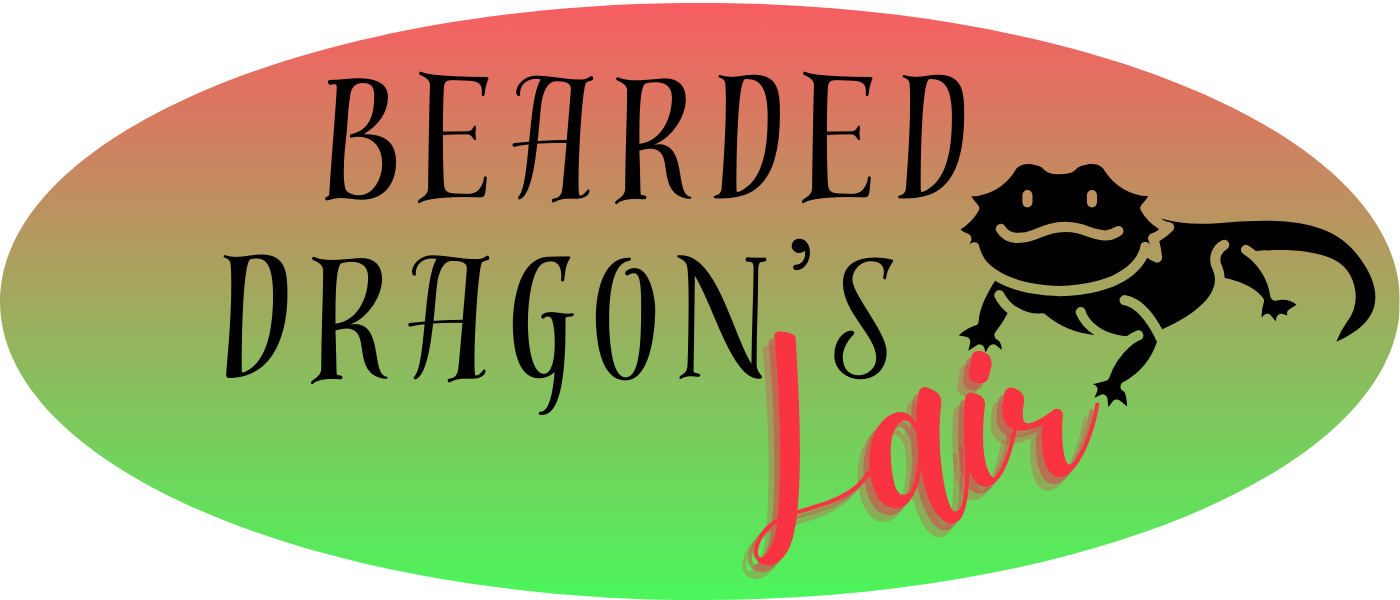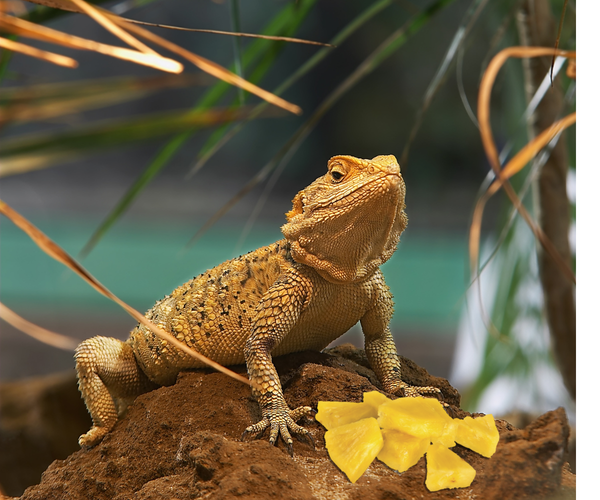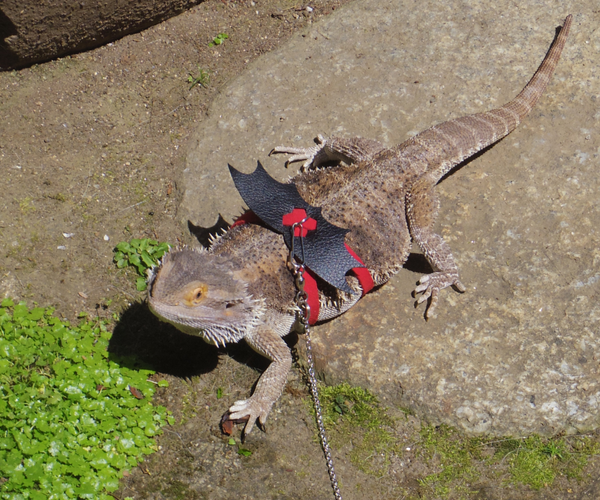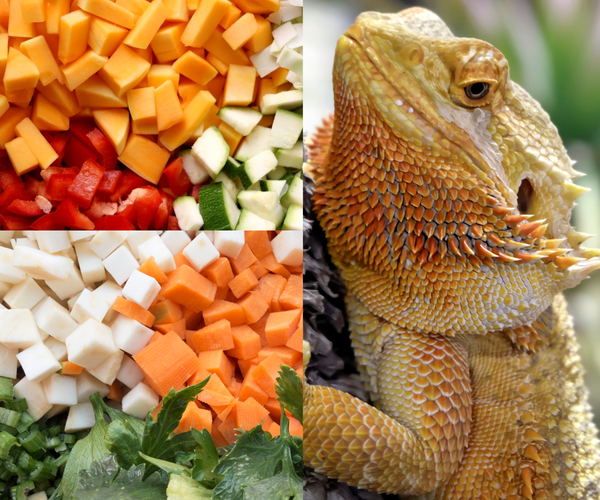Can Bearded Dragons Eat Mango?
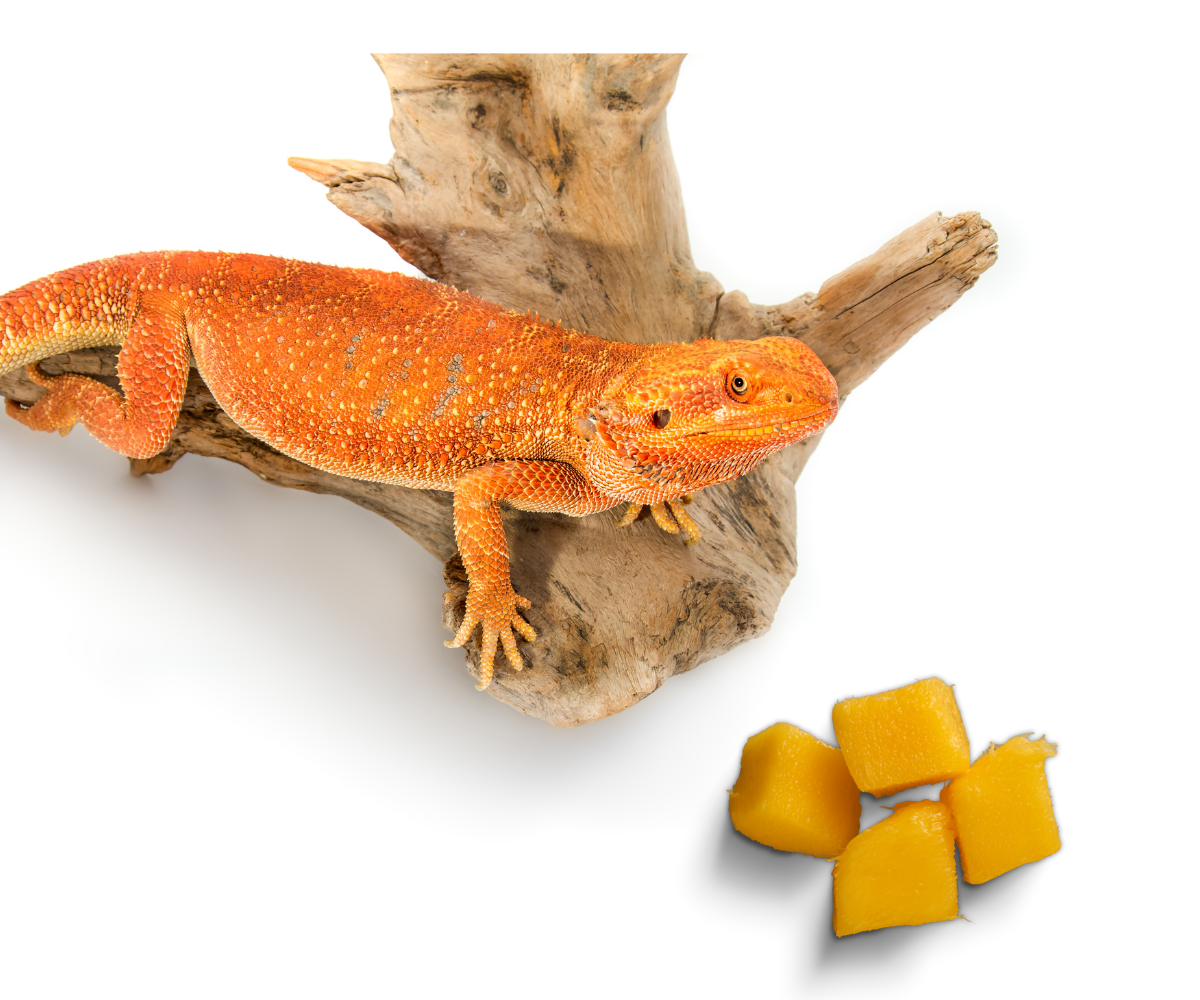
Bearded dragons are popular pets known for their docile nature and unique appearance. As a bearded dragon owner, it's crucial to understand their dietary needs to ensure they live a long and healthy life. One common question among bearded dragon enthusiasts is whether these reptiles can safely consume mango. This article will delve into the details of incorporating mango into a bearded dragon's diet.
Key Takeaways:
- Bearded dragons can eat mango in moderation as a treat.
- Mangoes provide essential vitamins but also contain sugar.
- Proper preparation and serving size are key to feeding mango to bearded dragons.
Understanding Bearded Dragon Nutrition
Bearded dragons are omnivores, which means they require a balanced diet of both plant-based and animal-based foods. In the wild, their diet consists of insects, greens, fruits, and occasionally small rodents. Captivity diets aim to mimic this natural feeding pattern. It's important to provide a variety of foods to ensure they receive all the necessary nutrients. Fruits like mango can be included, but they should only make up a small portion of the diet due to their sugar content.
The Benefits of Mango for Bearded Dragons
Mango is a nutritious fruit that offers several health benefits when added to a bearded dragon's diet. It is rich in vitamins A and C, which are essential for a healthy immune system and good vision. Mangoes also contain antioxidants that can help protect cells from damage. However, these benefits must be weighed against the high sugar content of the fruit, which can lead to health issues if consumed in excess.
How to Prepare Mango for Your Bearded Dragon
When feeding mango to your bearded dragon, it's important to prepare it properly. The mango should be ripe, fresh, and thoroughly washed to remove any pesticides or contaminants. Cut the mango into small, bite-sized pieces that your bearded dragon can easily consume. Remove the skin and pit, as these can be difficult for your pet to digest and may pose a choking hazard.
Serving Size and Frequency
Moderation is key when it comes to feeding mango to bearded dragons. A good rule of thumb is to offer mango as a treat, making up no more than 10% of their total diet. This equates to a small piece of mango every couple of weeks. Overfeeding mango can lead to digestive issues and obesity due to its sugar content.
Potential Risks of Feeding Mango to Bearded Dragons
While mangoes are safe for bearded dragons in moderation, there are potential risks associated with overfeeding. The high sugar content can contribute to obesity and dental problems. Additionally, too much fruit in the diet can cause diarrhea and an imbalance in the gut flora. Always monitor your bearded dragon's health and behavior after introducing new foods into their diet.
Nutritional Profile of Mangoes
Mangoes are a tropical fruit known for their sweet taste and nutritional value. They contain dietary fiber, vitamins A, C, and E, and are a source of potassium. For bearded dragons, these nutrients can support overall health, but the natural sugars present in mangoes necessitate cautious inclusion in their diet.
Alternatives to Mango in a Bearded Dragon's Diet
If you're looking for alternatives to mango, there are other fruits that can be safely offered to bearded dragons. Berries, apples, and melons can be given in moderation as part of a balanced diet. Always research each fruit's nutritional content and prepare it properly before feeding it to your pet.
Understanding the Importance of a Varied Diet
A varied diet is crucial for the health of your bearded dragon. In addition to fruits like mango, their diet should include a mix of leafy greens, vegetables, and insects. This variety ensures that they receive a wide range of nutrients necessary for their well-being. Consult with a veterinarian or a reptile nutritionist to create a balanced diet plan for your pet.
How to Monitor Your Bearded Dragon's Health
After introducing mango or any new food to your bearded dragon's diet, it's important to monitor their health. Look for signs of good digestion, regular bowel movements, and overall energy levels. If you notice any adverse reactions, such as diarrhea or lethargy, it may be necessary to adjust their diet. Regular check-ups with a veterinarian can help you keep track of your bearded dragon's health.
Best Practices for Feeding Fruits to Bearded Dragons
When feeding fruits like mango to bearded dragons, always follow best practices. This includes offering fruit in moderation, ensuring it's properly prepared, and providing a balanced diet. By adhering to these guidelines, you can enjoy the benefits of adding fruits to your bearded dragon's diet without risking their health.
Summary
In conclusion, bearded dragons can eat mango, but it should be given in moderation due to its sugar content. Mangoes offer nutritional benefits, such as vitamins A and C, but they should only be a small part of a bearded dragon's diet. Always prepare the mango properly and monitor your pet's health after introducing new foods. By following these guidelines, you can safely incorporate mango into your bearded dragon's diet.
FAQ Section
Q: How often can I feed my bearded dragon mango? A: Mango should be fed to your bearded dragon as an occasional treat, no more than once every couple of weeks.
Q: Do I need to remove the skin and pit of the mango before feeding it to my bearded dragon? A: Yes, always remove the skin and pit of the mango, as they can be difficult for bearded dragons to digest and may pose a choking hazard.
Q: Are there any signs I should look for to ensure my bearded dragon is handling new foods like mango well? A: Monitor your bearded dragon for regular bowel movements, normal energy levels, and an absence of diarrhea. If you notice any adverse reactions, consult with a veterinarian.
